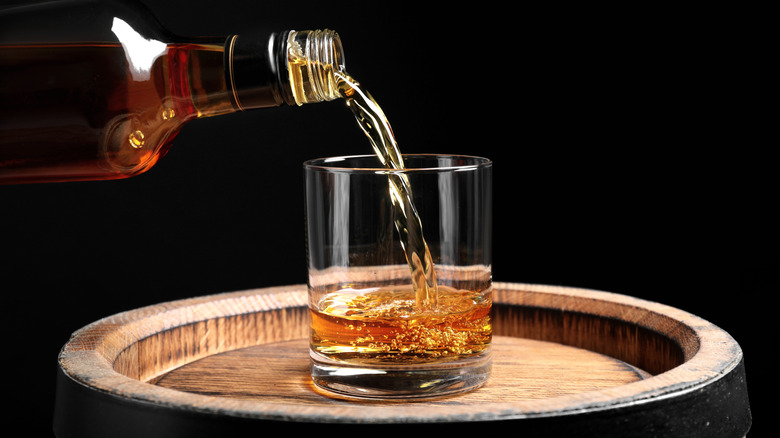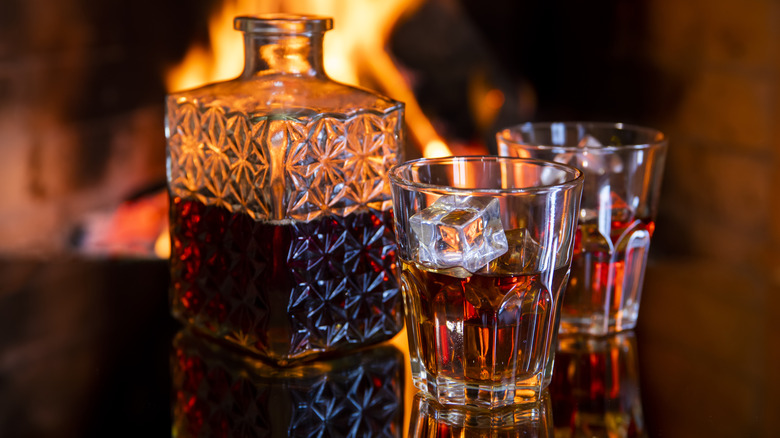Here's How Long Whiskey Lasts After Opening
One of the best things about liquor is that it doesn't go bad quite as easily as its lower-proof contemporaries. While beer doesn't last long after it's been opened, and wine will only generally keep a few days, whiskey can be enjoyed for an impressively long time. In fact, unopened whiskey never really actually expires as such, which is why it's not uncommon to enjoy a King Cole whiskey cocktail with your grandpa's decades-old bottle of whiskey.However, one thing you'll notice if that old bottle of whiskey is already open is that its flavor and overall strength aren't quite what they're supposed to be.
You see, just because whiskey doesn't go bad does not mean that time won't take its toll on the liquor. Whiskey eventually begins to lose its potency, flavor, and overall quality over time, especially after it is opened and thus exposed to oxygen — a process known as oxidation. While you might think you can be lax when it comes to your liquor storage just because it won't expire, that mentality is likely leading you to less enjoyable whiskey cocktails.
Contrary to popular belief, most — but not all — types of whiskey can last roughly a year or two after being opened before the flavors begin to deteriorate as a result of oxidation. With single malts, it could be as little as six months before you notice a difference. So what can you do to enjoy the spirit at its best? It all comes down to how, and where, you store it.
How to prevent whiskey from deteriorating over time
Ultimately, storage is key when it comes to keeping your whiskey from losing its strong flavor and high quality. Being watchful of your whiskey's temperature, and whether or not it's being exposed to sunlight, are both highly important to retain its quality. The spirit requires a consistent temperature wherever it's stored, ideally around 55 to 60 degrees Fahrenheit.
As with many types of alcohol, keeping whiskey out of the light is a must to keep it from deteriorating. Keeping it in a dark basement, cellar, or even garage is ideal — essentially, you're looking for a cool, dry place for the best storage. Make sure to keep bottles standing up rather than laying them on their side.
Even if you store your whiskey properly in these key ways, any bottle of the liquor that's already been opened will still have to deal with oxidation, which leads to deterioration. This isn't necessarily an immediate concern given how long whiskey can last after being opened, if it's stored in good conditions. To minimize the risk, once you've opened a bottle and started drinking it, you may prefer to transfer the remaining whiskey into a smaller bottle or decanter. This will limit the amount of oxygen it interacts with.

